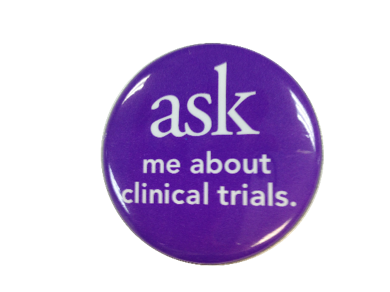About Clinical Trials
Clinical trials (research studies) evaluate new drugs, treatments and interventions. They increase understanding and knowledge about the best ways to diagnose and treat cancer. Many of today’s most effective standard treatments are based on the results of past studies. Because of progress made through clinical trials, new and better treatments continue to be discovered and many people treated for cancer are living longer.
In any given year, Lurie Cancer Center patients have access to more than 650 clinical trials providing innovative treatment options across Northwestern Medicine, covering a broad range of subjects, including:
- New drugs or vaccines
- New ways to do surgery
- New ways to do radiation therapy
- New combination therapies and treatments
- New ways to manage the side effects of cancer treatments
- New ways to store tissue for future research
- New behavioral interventions aimed at improving quality of life
- New behavioral therapies that can help treat cancer-related distress
Clinical trials are divided into four phases:
- Phase I: Tests safety and determined best dose to be given.
- Phase II: Determines if the drug is effective.
- Phase III: Compares the investigational drug with standard drugs that are already approved.
- Phase IV: Monitors the long-term safety of the drug.
 Ask About Clinical Trials
Ask About Clinical Trials
If you have been diagnosed with cancer, feel that you are at high risk of being diagnosed with cancer or if you are a survivor, ask your doctor if a clinical trial is right for you.
You can search the Lurie Cancer Center's clinical trials on our website or contact us at 312-695-1102 or cancertrials@northwestern.edu for personalized assistance.
